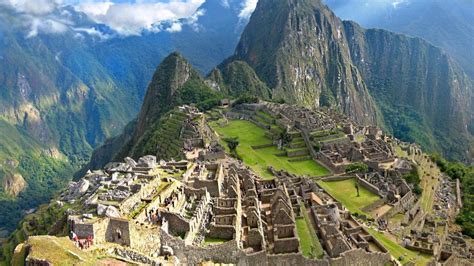

|
Music Group 2022-02-03
|
 One Note Samba / Spanish Flea — Sergio Mendes & Brasil '66
Submitted by Lewis, who writes: I got my parents to buy me this album in 1966. I thought it was going to be
the Herb Alpert version, so I was disappointed for ten minutes, but I
found out I liked this version a lot. Saw a Brasil '66 cover band do it
a few years back.
One Note Samba / Spanish Flea — Sergio Mendes & Brasil '66
Submitted by Lewis, who writes: I got my parents to buy me this album in 1966. I thought it was going to be
the Herb Alpert version, so I was disappointed for ten minutes, but I
found out I liked this version a lot. Saw a Brasil '66 cover band do it
a few years back.
 La Llorona — The Weeping Woman
Submitted by Alice, who writes: An ancient Mexican folklore of a woman whose spirit is earthbound because of the horrific things she did in life. Some of the earliest history of the story is present in a poem written by Manuel Carpio in the late 1800s. In that version, Llorona is merely the ghost of a woman who was murdered by her husband. However, the Llorona of this song, and the Llorona of scary stories that Mexican children are told, killed her children out of rage for her cheating husband. She is condemned to walking the river's edge forever searching for her dead children. The legend has been reshaped over the years and the verses to this song are now many. Lila Downs is one of my favorites. I love her passion, her amazing instrument and her obvious love for her Mexican culture.
La Llorona — The Weeping Woman
Submitted by Alice, who writes: An ancient Mexican folklore of a woman whose spirit is earthbound because of the horrific things she did in life. Some of the earliest history of the story is present in a poem written by Manuel Carpio in the late 1800s. In that version, Llorona is merely the ghost of a woman who was murdered by her husband. However, the Llorona of this song, and the Llorona of scary stories that Mexican children are told, killed her children out of rage for her cheating husband. She is condemned to walking the river's edge forever searching for her dead children. The legend has been reshaped over the years and the verses to this song are now many. Lila Downs is one of my favorites. I love her passion, her amazing instrument and her obvious love for her Mexican culture.
 Guantanamera
Submitted by Myndall, who writes: Guantanamera (woman from Guantánamo) is the best-known Cuban song from 1929 and that country's most-noted patriotic song, especially when using a poem by the Cuban poet José Martí for the lyrics.
Guantanamera
Submitted by Myndall, who writes: Guantanamera (woman from Guantánamo) is the best-known Cuban song from 1929 and that country's most-noted patriotic song, especially when using a poem by the Cuban poet José Martí for the lyrics.
 Manu Chao — La Primavera (2001)
Submitted by Liz, who writes: Wikipedia classifies Manu Chao as Spanish/French and he sings in both languages; I think La Primavera is just Spanish. Other than that, I'm not sure anyone else would classify this song as Latin Music but I love it. When I first heard it (in 2001), I swear it made me happy; now it sounds melancholic, but in a goofy kind of way. [1:52]
Manu Chao — La Primavera (2001)
Submitted by Liz, who writes: Wikipedia classifies Manu Chao as Spanish/French and he sings in both languages; I think La Primavera is just Spanish. Other than that, I'm not sure anyone else would classify this song as Latin Music but I love it. When I first heard it (in 2001), I swear it made me happy; now it sounds melancholic, but in a goofy kind of way. [1:52]
 Yo-Yo Ma — Piazzola: Libertango (from "Soul of the Tango")
Submitted by Mary, who writes: I just love this wonderful tango performed by Yo Yo Ma featuring tango dance excerpts from Sally Potter's 1997 film, The Tango Lesson" (two thumbs up if you haven't seen it.
Got curious to hear different interpretations of Piazzolla's piece and found
this version for 4 hands
recorded in 2021.
I thought I'd do some research on Astor Piazzolla (1921 - 1992), the father of "nuevo tango". Born in Argentina, he grew up in Little Italy in NY and studied music with Nadia Boulanger in Paris. (Side note, Madame Boulanger also taught Aaron Copland and Burt Bacharach).
Piazzola Wikipedia page
Yo-Yo Ma — Piazzola: Libertango (from "Soul of the Tango")
Submitted by Mary, who writes: I just love this wonderful tango performed by Yo Yo Ma featuring tango dance excerpts from Sally Potter's 1997 film, The Tango Lesson" (two thumbs up if you haven't seen it.
Got curious to hear different interpretations of Piazzolla's piece and found
this version for 4 hands
recorded in 2021.
I thought I'd do some research on Astor Piazzolla (1921 - 1992), the father of "nuevo tango". Born in Argentina, he grew up in Little Italy in NY and studied music with Nadia Boulanger in Paris. (Side note, Madame Boulanger also taught Aaron Copland and Burt Bacharach).
Piazzola Wikipedia page